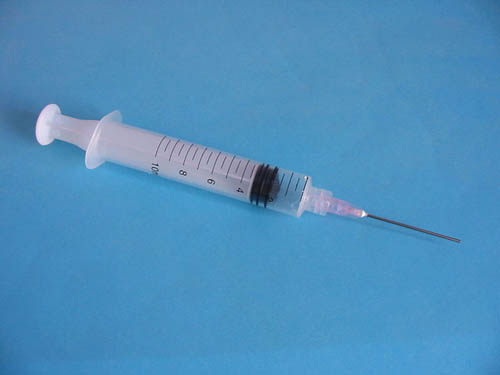INCREASING numbers of Scottish mums-to-be are choosing to have an epidural when giving birth – despite NHS efforts to encourage women to have natural labours.
Epidurals – an anaesthetic injection into the spine – cost the NHS around £200 a time and for many women the prospect of giving birth without one is unthinkable.
A-list mums Katie Holmes, Kate Winslet and Helen Botham-Carter all opted for the medical procedure which leaves woman numb from the waist down.

But as well as being expensive, health experts warn an epidural can slow down a mother’s recovery after labour, cause problems with breastfeeding and lead to further medical complications.
Advice, drawn up by the Scottish Government in 2009, entitled The Keeping Childbirth Natural and Dynamic (KCND) programme, urged midwives across the country to encourage women to have natural labours with as little medical help as possible.
But despite health chief’s calls, official figures from Scotland’s four biggest health boards, including Glasgow and Lothian, showed rates of epidurals have actually increased.
All health boards were asked to provide figures from 2002 to 2012.
NHS Lothian was only able to give stats from 2009 to 2011. The number of women who had an epidural rose from 22% to 26% in just over two years.
NHS Glasgow provided date from 2002 – 2012. The figures show a rise over the ten year period, from 44% in 2002 to 48% in 2012.
In Grampian, full figures were provided from 2005 – 2009. The numbers of woman choosing to have an epidural rose from 15% to 17% over the four years.
Tayside figures also revealed an increase from 22% to 24% from 2004 to 2011.
However, another major Scottish health board, NHS Fife, which heavily promotes natural childbirth at its midwife-lead unit, actually bucked the trend, with figures falling from 31% in 2004 to 13% in 2011.
Dr Vicki Clark, Consultant Anaesthetist at the Edinburgh Royal Infirmary warned that epidurals, like all medical procedures, carried risks.
She said: “In the early 80s, epidurals were given to women on medical grounds only, where as now they are available on demand, with a national average of around 28%.
“In Edinburgh we perform 2,000 epidurals a year and the procedure is very much consumer driven. Whereas before women were told to ‘put up’ and ‘shut up’, now we will bend over backwards to ensure a women feels comfortable in labour.
“I support a woman’s right to choose what pain relief she has in labour, and I have had two epidurals myself, but all medical procedures have some risks.
“With an epidural there is a risk that the woman will suffer with a headache after the procedure, her blood pressure may fall, there is an increased risk of forceps delivery and one in every 10,000- 20,000 woman will have temporary nerve damage,” she added.”

Estelle Cole, 55, from Aberdeen, runs Simply Holistic, hypno-birthing classes for mums-to-be looking for an alternative to a medicated birth.
She relied on hypnosis for the birth of her second son, after an epidural for her first child left her feeling “traumatised”.
She said: “I actually waited 14 years after having my first son because I couldn’t bear to go through childbirth again.
“I think a lot of it is fear of pain and a lack of understanding. You never see women having a nice, relaxing birth on television programmes, it all looks terribly traumatic and I think a lot of women imagine an epidural will be a magic solution.
“With an epidural you are medicated, it can slow down your contraction and gets in the way of you working with your body during the experience of birth.
“With my second son, I had a natural birth and found it a much, much better experience.”
A spokeswoman from NHS Fife said the health board actively encourages natural childbirth at its award-winning maternity-led unit.
NHS Fife Medical Director, Dr Brian Montgomery, added: “NHS Fife Midwives and Obstetricians actively encourage normality in labour.
“In Fife, this is supported by having a Midwife-led Maternity Unit and a Consultant-led Obstetric Unit which are separate but adjacent.
“We offer a full range of pain relief which include epidurals to our patients.
“We consider the use of pain relief to be the personal choice of the mother taking into account the advice of the clinician.”

